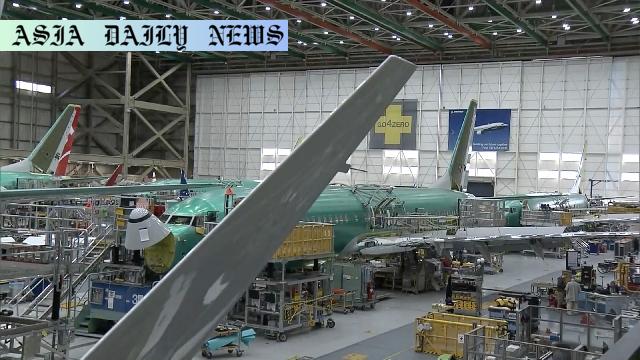Tariffs: The Chinese commerce ministry criticized US measures, stating they destabilized global industrial supply chains.
China criticized US tariffs, declaring them destabilizing to global supply chains.
Chinese airlines and Boeing faced economic losses due to trade tensions.
China demanded the US retract the tariff measures to aid trade normalcy.

Introduction
The recent conflict surrounding tariffs between the United States and China has once again disrupted the global trade landscape, leading to unforeseen consequences across industrial and supply chains. The commercial aviation sector, led by one of the world’s most prominent aircraft manufacturers Boeing, now finds itself at the heart of this growing economic divide.
US Tariffs: A Weaponized Approach
The Chinese government and its corporate players have long been affected by the aggressive tariff policies introduced by the US administration under former President Donald Trump. These measures have not only increased the cost of goods but also created an air of unpredictability for businesses. The Chinese commerce ministry condemned these tariffs, explicitly describing them as a “weaponized approach” that undermines global trade stability.
Boeing and China’s Airlines: Victims of a Trade War
As a direct result of the heightened trade tensions, several Chinese airline firms have opted to return Boeing airplanes to the United States, citing economic infeasibility. This move underscores the cascading impacts of tariff imposition, pushing multinational organizations and government bodies to re-evaluate their partnerships. In recent statements, Boeing has expressed concerns about the ongoing disruptions shaking its relationship with a vital market like China.
Global Supply Chains in Peril
The broader implications extend well beyond the aviation sector. The entire global industrial and supply chain infrastructure faces a threat of destabilization, raising concerns about its resilience amid protectionist policies. When nations implement unpredictable economic measures, industries ranging from technology to manufacturing suffer long-term consequences.
A Call for Diplomacy and Trade Normalization
China’s commerce ministry has called on the United States to retract tariff measures promptly. Their call is rooted in the hope of restoring stability while advocating for an environment conducive to economic growth. By retracting these damaging tariffs, the ministry argues that enterprises on both sides would regain the predictability necessary to make informed industrial investments.
Conclusion
The US-China trade friction emphasizes the global economy’s interconnected nature and vulnerability to policy changes. As collaboration remains vital in mitigating further instability, nations must prioritize dialogue and mutual benefits to ensure the seamless operation of international business and industry reliance.
Commentary
Impact of Tariffs on Global Trade
Trade is the backbone of globalization, creating economic interdependence between nations. However, policies such as increased tariffs can disrupt even the most stable commodities’ exchange. The US-China tariff tensions showcase how seemingly localized policies can have rippling effects on a global scale, often burdening industries and consumers alike. The aviation sector, specifically Boeing, serves as a cautionary tale in showcasing the consequences of political decisions bleeding into the corporate domain.
The Role of Diplomacy in Trade Deficits
While it is understandable for countries to advocate for their domestic economies, diplomacy remains a crucial tool in mitigating trade conflicts. A failure to address disagreements through open dialogue can lead to consequences that neither side initially anticipated, as seen in this scenario. Furthermore, such disruptions erode trust, complicating the prospects of future collaborations, irrespective of the sector or industry involved.
A Way Forward for Global Players
There is hope for restoring stability when economic juggernauts recognize the need for collective growth. Policies designed around mutual benefit rather than isolated gain often result in an environment where businesses can thrive. It is imperative that stakeholders move away from protectionist policies and engage in constructive collaboration.


